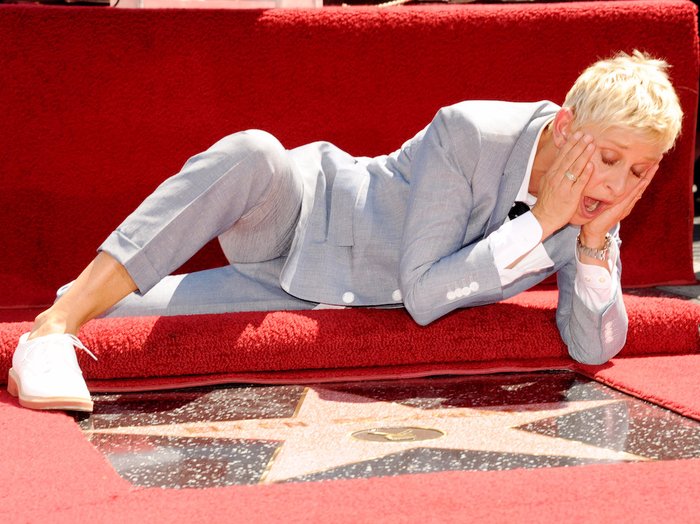Power of Representation: LGBTQ+ Icons

Echoes of Change: How Iconic Figures Shape Societal Perspectives
Sergio Hudson
Representation plays a pivotal role in any societal structure. Through history's lens, the power of representation has sparked revolutions, fomented cultural shifts, and provided solace to many who felt unseen. For the LGBTQ+ community, this power is magnified, as icons within this sphere have not only represented diverse identities but have actively fought for acceptance, understanding, and equality.
Over the years, many LGBTQ+ figures have transcended their personal narratives to become beacons of hope for millions. Their lives, works, and activism have played instrumental roles in shaping societal views and advocating for LGBTQ+ rights.
Harvey Milk:
Harvey Milk
Is one of the earliest LGBTQ+ activists who stepped into the political limelight. As the first openly gay elected official in California, Milk's short yet impactful political career was a testament to the power of representation. He embodied the possibility that LGBTQ+ individuals could hold public office and effect change. Tragically, his assassination underscored the very prejudices he sought to overcome. Yet, his legacy is a resonating reminder of the importance of visibility in leadership.
Marsha P. Johnson
Marsha P Johnson
Is a black transgender woman, is synonymous with the early LGBTQ+ rights movement. Her pivotal role during the Stonewall riots of 1969 cemented her status as an icon. Johnson co-founded the Street Transvestite Action Revolutionaries (STAR) alongside Sylvia Rivera, focusing on supporting homeless LGBTQ+ youth. Her dedication showcases the significance of intersectionality within the LGBTQ+ rights movement, emphasizing that representation must span races, genders, and socio-economic statuses.
Ellen DeGeneres
Ellen DeGeneres
Coming out in the 1990s was a watershed moment for LGBTQ+ visibility in mainstream media. As a beloved television personality, her public declaration and subsequent portrayal of an openly gay character on her sitcom challenged societal norms. Ellen's journey, marked by both overwhelming support and career setbacks, underscores the risks and rewards tied to representation.
Freddie Mercury
Freddie Mercury
The enigmatic frontman of Queen, never explicitly labeled his sexuality but became an LGBTQ+ icon due to his relationships and his battle with AIDS. Mercury's global popularity and his posthumous recognition as an LGBTQ+ figure have contributed immensely to destigmatizing HIV/AIDS and advocating for LGBTQ+ rights.
Modern times have witnessed an increased acknowledgment of diverse sexualities and gender identities, thanks to many contemporary LGBTQ+ icons. Figures like Laverne Cox have shattered barriers for transgender individuals, especially in the entertainment industry. As the first transgender person to be nominated for a Primetime Emmy Award, Cox's presence on screen and her advocacy off it spotlight the importance of diverse representation in media.
Anderson Cooper , a revered journalist, has gracefully balanced his professional acumen with personal authenticity. As an openly gay news anchor, Cooper's prominence challenges the biases often associated with LGBTQ+ individuals in professional settings.
Moreover, the influence of LGBTQ+ icons isn't limited to Western societies. **Gauri Ma**, an Indian transgender activist, has championed rights for the Hijra community (a traditional third gender in South Asia) and has become a beacon of hope for many in a region marked by deeply entrenched gender norms.
Across various spheres, these icons share common threads – courage, authenticity, and a commitment to visibility. Their representation serves multiple purposes: providing role models for LGBTQ+ individuals, challenging societal prejudices, and expanding the collective understanding of diverse identities.
While society has come a long way in recognizing LGBTQ+ rights, representation is still a double-edged sword. On one hand, increased visibility of LGBTQ+ figures in mainstream media signals progress. On the other, tokenism and stereotyping remain pressing concerns.
Nevertheless, the icons mentioned above, among many others, have set the wheels of change in motion. Their contributions extend beyond their professional realms, as they've played instrumental roles in shaping the narrative around LGBTQ+ rights and representation. Their stories, imbued with challenges and triumphs, underscore a universal truth: representation matters.
In the broader societal tableau, the power of LGBTQ+ representation reverberates with a singular message – love, in all its myriad forms, deserves acknowledgment, respect, and celebration. And as society continues to evolve, the echoes of this message, championed by LGBTQ+ icons, will hopefully usher in a world marked by acceptance and understanding.
Discover Prophecy Brand, a realm where luxury fashion intertwines seamlessly with profound spirituality. More than a brand, we are a creative powerhouse propelling groundbreaking marketing and publicity campaigns. Immerse yourself in our meticulously curated content, a harmonious blend of timeless elegance and narratives that resonate deeply. Embark on a journey with us towards the fashion future.





